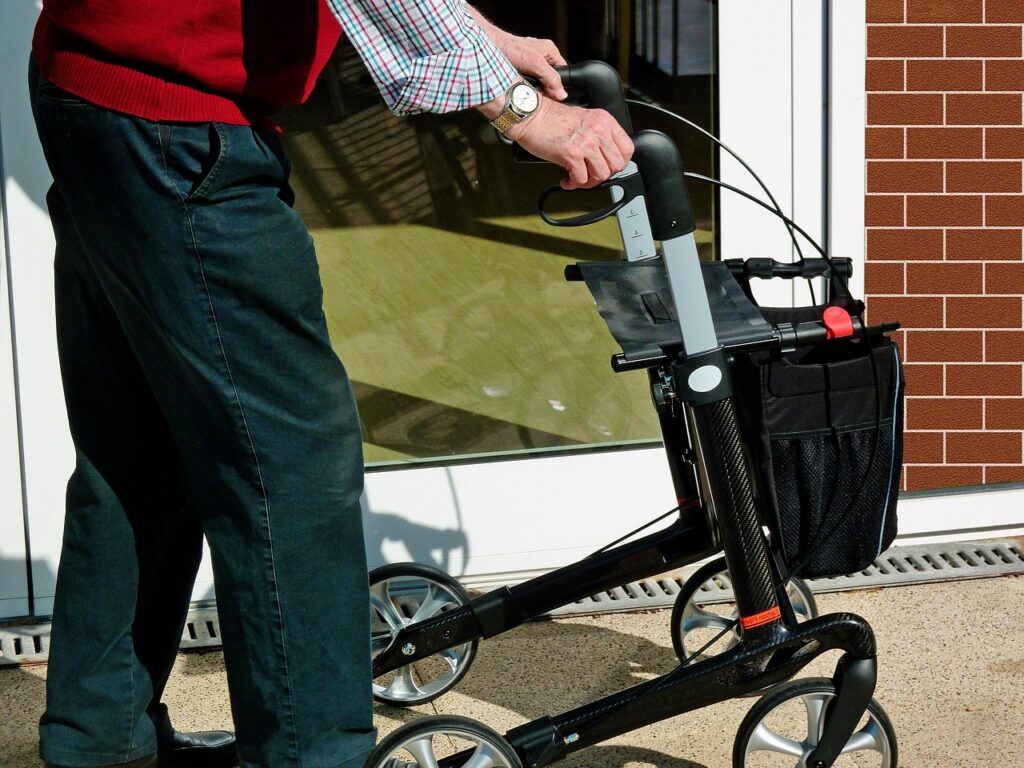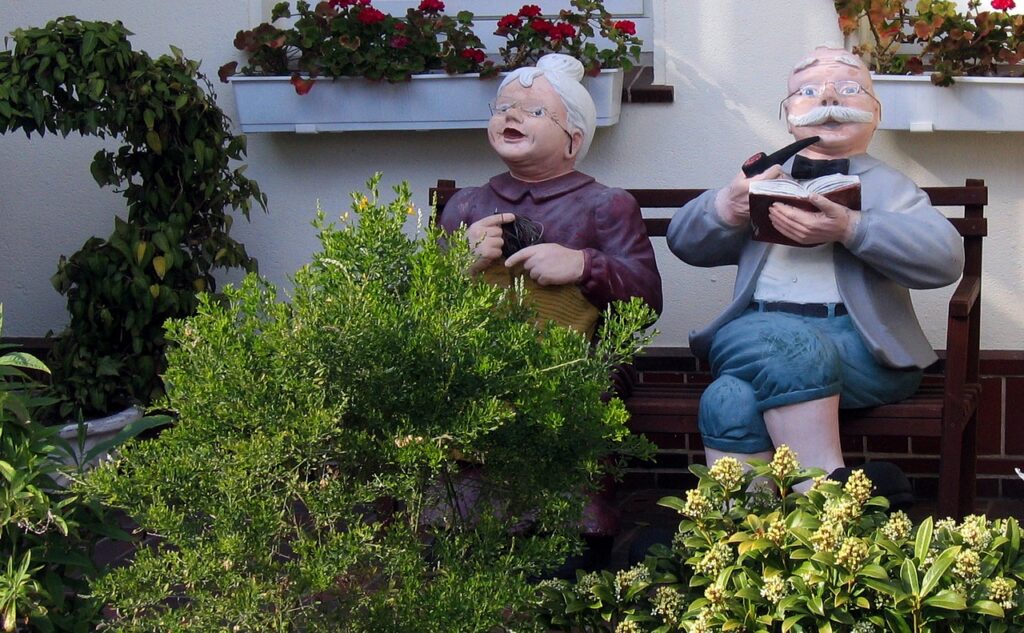
The golden years, often envisioned as a time of leisure and personal fulfillment, can sometimes present unexpected challenges, chief among them the sting of loneliness and isolation. For many seniors, the absence of daily workplace interactions, the loss of loved ones, or geographical distance from family can lead to a quiet solitude that impacts far more than just emotions. “Forty percent of seniors report regularly experiencing loneliness,” a figure that underscores a pressing societal concern. This isn’t just a fleeting feeling; “The U.S. Department of Health and Human Services calls loneliness an epidemic, with far-reaching consequences for our well-being. Loneliness may even shorten your life.” Retirement should be a vibrant chapter, a chance to live life on your own terms, not in isolation.
Fortunately, the solution is often found in the heart of community: social clubs and engaging activities tailored for older adults. These groups offer a powerful antidote to the challenges of aging alone, transforming retirement into a period of renewed connection, purpose, and joy. This article will delve into the profound benefits that regular social clubs and activities offer seniors, exploring how they keep the mind sharp, the body active, and the spirit engaged, ultimately enhancing the overall quality of life for older adults.

1. **Combating Loneliness and Isolation**The silent struggle of loneliness affects a significant portion of the senior population, with “Forty percent of seniors report regularly experiencing loneliness.” This isn’t merely an uncomfortable feeling; its impact is deep and pervasive. The U.S. Department of Health and Human Services has officially designated loneliness as an “epidemic, with far-reaching consequences for our well-being,” further cautioning that “Loneliness may even shorten your life.” This stark reality highlights the urgent need for effective strategies to foster connection among older adults.
Social clubs and group activities provide a powerful counter-narrative to this epidemic by fostering essential connections and a profound sense of belonging. By regularly participating in these gatherings, seniors can replace solitude with vibrant interactions and shared experiences. This consistent engagement offers much-needed structure, helping individuals build routines that actively “stave off loneliness” and cultivate meaningful friendships.
Beyond simply filling time, these connections offer invaluable emotional comfort and mutual support. When seniors gather, they create an environment where shared experiences and understanding can flourish. This supportive network is particularly crucial for those navigating significant life changes, making coping with life’s transitions more manageable and promoting emotional resilience. Research reinforces that sustained social interaction is linked to improved emotional well-being and a reduced risk of depression and anxiety.
Read more about: The Autonomous Age: How Driverless Tech is Set to Revolutionize Senior Mobility, Independence, and Community Connection

2. **Fostering Mental Stimulation and Cognitive Health**As individuals age, maintaining cognitive function becomes an increasingly important aspect of overall health. Social engagement offers a powerful pathway to keeping the mind sharp and active, playing a crucial role in preventing or slowing cognitive decline. Activities that encourage mental agility are not just enjoyable; they are essential for long-term brain health.
Engaging in group activities such as playing games, joining book clubs, painting classes, or simply engaging in lively conversations provides vital mental stimulation. These interactions challenge the brain, from recalling information during trivia to analyzing plot points in a book discussion. Such regular mental exercise helps to preserve memory and enhance overall cognitive performance.
Many social clubs incorporate activities designed to boost brainpower, including puzzles, memory games, and trivia challenges. Group discussions, in particular, foster intellectual sharpness by encouraging seniors to articulate thoughts, consider diverse perspectives, and engage in thoughtful debate. Learning new skills, whether a craft, language, or technology, also keeps curiosity alive and the mind actively learning. Research unequivocally shows that “older adults who stay socially active are less likely to experience cognitive decline or develop dementia.”
Read more about: Unclogging the System: 14 Expert-Backed Drinks for Instant Constipation Relief
3. **Promoting Physical Activity and Health**Maintaining physical health is paramount in the golden years, and social clubs offer a delightful and effective way for seniors to stay active. Participating in group activities provides motivation and enjoyment, making fitness feel less like a chore and more like a social outing. This integration of movement into social routines is a cornerstone of healthy aging.
Seniors involved in social groups tend to exhibit higher overall physical activity levels. This can range from walking to club gatherings to actively participating in structured exercise classes. These activities collectively contribute to improved mobility, enhanced flexibility, increased strength, and better cardiovascular health, all vital components of robust physical well-being.
Many social clubs specifically incorporate physical activities into their programs, such as group exercises like yoga and dancing, or walking clubs that explore local paths. “By moving in sync with peers, seniors feel encouraged to push just a little further than they might alone,” fostering a sense of shared accomplishment and mutual support. This collective motivation makes it easier to stay committed to a healthy lifestyle. Studies confirm that seniors who consistently engage in regular physical activity tend to experience “longer, healthier lives.”
Read more about: Navigating the Road to Relief: Essential Features for 2025 Cars to Support Drivers with Back Pain

4. **Enhancing Emotional Well-being and Mood**The emotional landscape of retirement can bring unique challenges, but social clubs serve as invaluable havens for fostering emotional well-being and uplifting mood. Engaging with a supportive community directly combats the stress and potential depression that can arise from life changes such as retirement or the loss of loved ones. These interactions provide a crucial emotional anchor.
Socializing offers a vital source of emotional support that helps seniors navigate the transitions of later life. When older adults have rich social lives, they consistently report “higher life satisfaction and better mental wellness.” This sense of connection and understanding from peers creates a powerful buffer against emotional distress, allowing individuals to share concerns and celebrate joys in a supportive environment.
“Studies have shown that consistent social interaction plays a crucial role in the emotional well-being of older adults.” In fact, “research published in The Journals of Gerontology indicates that routine social interactions are associated with higher affective well-being in seniors.” This scientific validation highlights the profound importance of social connection for healthy aging, actively diminishing any sense of isolation and fostering a more positive emotional state.
Read more about: Beyond the Headlines: How Celebrity Real Estate Choices Redefine Luxury Living and Shape Market Trends for Discerning Homebuyers in 2025
5. **Building Healthy Relationships and a Sense of Belonging**One of the most profound benefits of social clubs for seniors is the unparalleled opportunity to forge and sustain healthy, meaningful relationships. As individuals age, the landscape of their social circles can shift, making it even more important to actively cultivate new connections. Social clubs provide a dedicated space where friendships can not only form but truly flourish, becoming vital pillars of support and joy.
These clubs act as natural conduits for connection by bringing together individuals who share common interests, hobbies, and life experiences. Whether discussing a new book, tending a garden, or reminiscing over shared history, these commonalities lay the groundwork for deep bonds. This shared ground makes it easier to initiate conversations, find commonality, and develop genuine rapport among members, fostering enduring friendships.
Crucially, participating in these communities helps to significantly reduce the isolation and loneliness that many older adults might experience. By becoming an active part of a group, seniors gain a powerful sense of acceptance and belonging, feeling valued and connected to others. This shared identity within a vibrant community counteracts feelings of solitude, creating a welcoming environment where individuals feel truly seen and heard. This active social engagement enriches lives, providing the bedrock for a truly satisfying and connected retirement.
Read more about: Beyond the Limelight: How 14 Celebrities Navigate Profound Loss to Inspire Growth and Find Renewed Purpose
6. **Developing a Social Safety Net**Beyond the immediate joys of companionship and shared activities, social clubs for seniors offer an invaluable, often understated, benefit: the development of a robust social safety net. This informal yet powerful network of support can provide both practical assistance and emotional reassurance, especially for seniors who may not have immediate family nearby or who face evolving life circumstances.
Friends and acquaintances made through recreational events and club gatherings frequently evolve into dependable contacts who can offer practical help. This can range from assisting with errands, coordinating “meal trains” during illness, or providing rides to doctor appointments. This sense of community acts as a vital resource, filling gaps in support that might otherwise leave seniors vulnerable or struggling alone.
Furthermore, the consistent presence of peers within a social club environment serves as a powerful deterrent against potential elder abuse or neglect. “Group members tend to look out for each other,” creating a protective layer of vigilance and care that enhances overall safety and well-being. Regular attendance at community centers or club meetings also offers older adults a trusted forum to voice any concerns, making it “less likely for them to suffer in silence.” This network ensures that both practical and emotional assistance is readily available when it is needed most.
Read more about: Boomers & Millennials Unite: 14 Things We’re All Officially Done Caring About (Seriously Bye)

7. **Access to Resources and Information (e.g., AARP)**Social clubs often serve as far more than just gathering places; they function as vital supportive networks, offering not only companionship but also a wealth of resources and valuable assistance. For seniors, access to timely and accurate information on a variety of topics is crucial for navigating their golden years successfully, and these clubs frequently become trusted conduits for such knowledge.
A prime example of an organization that embodies this resource-rich approach is the American Association of Retired Persons (AARP). If an older adult were to “join only one senior organization, the American Association of Retired Persons (AARP), might be your best bet.” AARP provides an extensive array of “education, activities, and even discounts on a wide range of services,” making it an indispensable tool for enhancing senior life.
Beyond national organizations, local social clubs often provide direct access to information on essential topics. This includes practical guidance on healthcare services, exploring various housing options tailored to older adults, and understanding community services that can significantly enhance their quality of life. Through regular meetings and interactions, club members also stay informed about local events, workshops, and programs that promote lifelong learning and social interaction. By empowering seniors to navigate available resources more effectively, these clubs contribute profoundly to their overall quality of life.

8. **AmeriCorps Seniors: Purpose Through Volunteering**For seniors seeking to channel their invaluable life experience into meaningful action, AmeriCorps Seniors offers a truly inspiring avenue. Many might assume that significant volunteering opportunities like those offered by the Peace Corps are exclusively for the young, but the context invites us to ‘Think again.’ AmeriCorps Seniors actively partners with thousands of older adults, meticulously matching their unique skills with communities and individuals most in need. It’s a powerful way to continue contributing to society and to find deep personal fulfillment.
This dedicated program goes beyond simple engagement; it provides a profound sense of purpose that enriches the lives of both volunteers and those they serve. A significant aspect of AmeriCorps Seniors involves older adults supporting their peers, creating a reciprocal network of care and friendship. This means that while volunteers are making a tangible difference in the lives of others, they are simultaneously ‘mak[ing] friends and ensur[ing] your peers lead meaningful lives, regardless of ability.’ This focus on mutual support fosters a strong sense of community and shared accomplishment.
AmeriCorps Seniors is open to adults aged 55 and older, offering a diverse array of volunteering options. Whether it’s helping children develop their reading skills, providing companionship to another senior, or joining the Foster Grandparent program, the opportunities are vast and varied. The organization emphasizes ‘giving engaged older adults a chance to use their life experiences, skills, and knowledge to help younger generations and make a positive impact in the community,’ reinforcing the invaluable role seniors play in strengthening community bonds and imparting wisdom across generations.

9. **The Red Hat Society: Embracing Fun and Sisterhood**For women who wholeheartedly embrace the idea that ‘age is truly just a number,’ The Red Hat Society presents a vibrant and unconventional path to social wellness. This group is designed for spirited women aged 50 and older, united by an ethos that is ‘distinctly fun, humorous, and forever young.’ It’s a celebration of life, adventure, and the enduring power of female friendship, encouraging members to live boldly and joyfully in their golden years.
The Red Hat Society is far more than just a social club; it’s an adventurous collective committed to a dynamic range of activities. From lively outings and engaging activism to community service, members actively participate in experiences that keep them ‘young at heart.’ This commitment to staying active and engaged fosters a sense of excitement and continuous discovery, proving that the zest for life only grows stronger with age. It’s an invitation to explore new horizons and embrace every day with enthusiasm.
This unique women’s group champions a philosophy of continuous exploration, encouraging its members to ‘continue trying new things, traveling, forming friendships with other members, and making the most of each day.’ With a presence ‘all across the globe,’ The Red Hat Society offers an expansive network where women can discover ‘true connection and sisterhood.’ It provides a supportive and empowering environment where friendships can truly flourish, allowing members to share laughter, experiences, and a genuine camaraderie that enriches their lives profoundly.
10. **National Senior Games: Reigniting the Competitive Spirit**For seniors with an athletic inclination or a desire to rekindle their competitive fire, the National Senior Games offers an exhilarating pathway to physical activity and social engagement. Many lifelong athletes might mistakenly believe their days of competitive performance are behind them, but the National Senior Games challenges this notion, encouraging them to ‘Think again.’ This organization brings together a diverse group of participants, from ‘serious senior athletes’ to those who are ‘just beginning their training after a lifetime of distraction,’ proving that it’s never too late to pursue athletic aspirations.
Participating in the National Senior Games is about much more than just winning; it’s about the journey of preparation, the thrill of competition, and the camaraderie forged with fellow athletes. Joining a local group provides seniors with a supportive training environment and a chance to build friendships with individuals who share a passion for sports. This local engagement culminates in the opportunity to ‘compete in the national games,’ offering a significant goal and a platform for achievement and recognition.
The physical benefits are substantial, as dedicated training and competition promote improved cardiovascular health, strength, endurance, and agility. Beyond the physical, the games foster mental discipline, goal setting, and the sheer joy of pushing one’s limits. It creates a vibrant community where seniors can celebrate their athletic prowess, inspire one another, and enjoy the profound sense of accomplishment that comes from active participation in competitive sports, reinforcing a commitment to lifelong physical wellness.
11. **Audubon Society: Connecting with Nature and Conservation**For those who seek tranquility, intellectual engagement, and a deeper connection with the natural world, the Audubon Society provides a unique and enriching social outlet. It encourages individuals to ‘pay attention to the world around you,’ revealing ‘an entire world of drama, relationships, triumph, and tragedy unfolding.’ This mindful observation, particularly focusing on ‘the birds in your backyard,’ opens up a fascinating realm of discovery that many might otherwise overlook. It’s a gentle invitation to pause, observe, and appreciate the intricate ecosystems around us.
The Audubon Society’s core mission extends beyond simple birdwatching; it ‘encourages people to cultivate mindfulness and environmental stewardship by observing native birds.’ This involves learning extensively about avian wildlife, including how to identify different species, understanding their nesting habits, and recognizing their distinctive calls. Such focused learning stimulates cognitive function and fosters a keen intellectual curiosity, providing endless opportunities for discovery and shared knowledge among members.
By joining the Audubon Society, seniors can actively contribute to critical conservation efforts. Members collaborate on projects related to ‘conservation and habitat protection with other enthusiastic Audubon members,’ turning a personal interest into collective action. This shared commitment to environmental well-being not only provides a sense of purpose but also fosters strong bonds among like-minded individuals. It allows seniors to engage with nature, learn continuously, and make a tangible positive impact on the world, all while enjoying the company of a supportive community.

12. **SilverSneakers: Accessible Fitness for Every Senior**Maintaining physical health and mobility is a cornerstone of a fulfilling retirement, and SilverSneakers offers an exceptionally accessible and supportive path for seniors to ‘get moving so you can stay healthy and limber.’ This program is designed with flexibility in mind, providing a ‘low-key way to do just that,’ ensuring that fitness is approachable and enjoyable for a wide range of abilities and preferences. It acknowledges that staying active is crucial and provides practical tools to achieve this.
SilverSneakers provides diverse opportunities for physical activity, catering to individual comfort levels and routines. Members can choose to ‘go to the gym, walk with other seniors, or even take classes from the comfort of your own home.’ This versatility ensures that seniors can find a fitness regimen that suits their lifestyle, whether they prefer a structured class environment, outdoor walking, or the convenience of home-based exercises. The program’s emphasis on choice empowers seniors to take charge of their physical well-being.
As a comprehensive ‘health and wellness group for older adults,’ SilverSneakers offers not only a variety of ‘online and local community fitness classes’ but also valuable ‘nutrition tips’ to help members ‘look and feel your best.’ The inclusive nature of the program is highlighted by its offering of ‘classes for all fitness levels and abilities,’ creating a welcoming and encouraging environment. This makes it easier for seniors to embark on or continue their fitness journeys, fostering improved cardiovascular health, strength, flexibility, and overall vitality in a supportive community setting.

13. **Book Clubs: Sharpening the Mind Through Shared Stories**For seniors who cherish intellectual engagement and the joy of a good story, book clubs offer a fantastic way to maintain cognitive vitality and connect with others. The context highlights that ‘a book club can help you keep your mind sharp and active, which may lower your risk of dementia.’ This isn’t just about reading; it’s about the active process of analysis, interpretation, and discussion that stimulates the brain and preserves mental agility. It’s an accessible and enjoyable way to exercise the mind.
Beyond cognitive benefits, book clubs provide a unique social dynamic. For those ‘eager to read the latest literary novel,’ a book club can serve as a powerful motivator, helping to ‘keep you accountable.’ More importantly, the group setting offers ‘new perspectives you may never have considered,’ broadening understanding and fostering lively, engaging conversations. Members come together to ‘discuss your ideas, opinions, and predictions’ about the shared book, creating a rich intellectual exchange.
Joining a book club is a practical way to foster connections built on shared interests and intellectual curiosity. Seniors might ‘find a genre or author you have never heard of before or discover your new favorite story,’ expanding their literary horizons. Local public libraries and bookstores are excellent resources to ‘connect to a book club,’ making it simple to find a welcoming group. These clubs provide not only mental stimulation but also a vibrant social scene where friendships can blossom over the shared love of literature.
14. **Garden Clubs: Cultivating Connections and Green Thumbs**For seniors who find joy in nature, the satisfaction of nurturing growth, and the therapeutic act of working with their hands, garden clubs present a wonderfully grounding and engaging social activity. The context paints a vivid picture: ‘If you love getting your hands dirty and watching in awe as spring bulbs become summer blossoms, you can sharpen your skills and make friends through a garden club.’ It’s an ideal setting to combine a passion for gardening with meaningful social interaction and continuous learning.
Garden clubs offer a multitude of benefits, encompassing physical activity, creative expression, and intellectual growth. The act of gardening itself provides gentle exercise, promoting mobility and dexterity while connecting members with the calming influence of the outdoors. Members can ‘sharpen their skills’ in horticulture, learning new techniques, sharing expertise, and collectively bringing beauty to their communities. This hands-on engagement stimulates both body and mind, fostering a sense of accomplishment.
Beyond the practical aspects of gardening, these clubs cultivate strong social bonds. They bring together individuals who share a common passion, making it easy to form friendships and exchange experiences. With ‘chapters all across the globe,’ finding a local garden club is often straightforward, ensuring that ‘there’s almost certainly one in your area.’ These clubs provide a nurturing environment where seniors can share their love for plants, contribute to local beautification, and enjoy the companionship of fellow enthusiasts, enriching their retirement with purpose, beauty, and connection.
Ultimately, the journey through retirement should be one of continuous growth, joy, and connection, not one marked by solitude. As we’ve explored, the diverse tapestry of social clubs and activities available to seniors offers far more than just ways to pass the time; they are vital arteries feeding a fulfilling and healthy lifestyle. From the empowering volunteerism of AmeriCorps Seniors to the exuberant adventures of The Red Hat Society, the athletic challenges of the National Senior Games, the mindful connection with nature through the Audubon Society, the accessible fitness of SilverSneakers, the intellectual stimulation of book clubs, and the hands-on creativity of garden clubs, each avenue provides unique opportunities. They collectively reinforce the profound truth that staying socially engaged is key to not only combating loneliness but also enhancing cognitive function, boosting physical health, nurturing emotional well-being, and ultimately leading a longer, happier life. So, step out, explore these wonderful options, and cultivate the vibrant, connected retirement you truly deserve.









